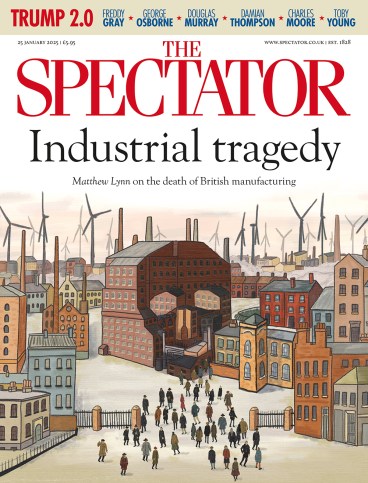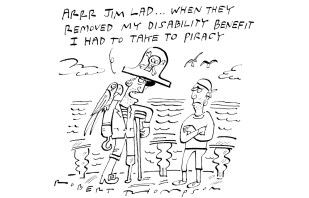
Rose George has narrated this article for you to listen to.
My cat can smell depression. Another family cat could smell my stepfather’s dementia. They both became more affectionate and tactile: the dementia-smelling cat would gently paw my stepfather, when he hadn’t even liked her when he had been well. My cat comes in close when my mood is darker. Perhaps both cats were using other cues, but I’m convinced it was smell.
Up until the 18th century, doctors relied for diagnoses on smell as much as anything else
For something that Jonas Olofsson calls ‘the easiest and most natural thing in the world’, smell is satisfyingly complicated. When it comes to humans’ ability to smell, as Olofsson persuades us in this captivating book, it has also been profoundly neglected. This wasn’t always the case. Up until the 18th century, doctors relied for diagnoses on smell as much as anything else. They ‘squeezed, observed, smelled and tasted’. They knew that ‘diphtheria smelled sweet, scurvy smelled pungent, typhus smelled like freshly baked rye bread and scrofula, a type of tuberculosis, smelled like stale beer’.
These inklings were lost when the Enlightenment arrived, and since then humans have come to think of themselves as poor smellers, at least compared to dogs and other animals. We assume smell is our weakest sense and sight our strongest. We now live in an age of sight and are slaves to screens. In one study, 50 per cent of Americans who were given the choice of keeping either their sense of smell or their mobile chose the phone. But smell has a power like no other. It takes us back to childhood in an instant.
In fact, writes Olofsson, a professor of psychology at Stockholm University, where he runs the Sensitive Cognition Interaction Laboratory, we are much better smellers than we think. A mouse’s olfactory bulbs occupy 2 per cent of its brain; a human’s only take up 0.01 per cent. But that is probably because human brains are so large. We have as many neurons in our olfactory bulb as a mouse: ten million. (This is a fact to remember for the next time you are lacking small talk. Do some smell talk.)
The human sense of smell is good enough to detect ‘the odorant butyl mercaptan diluted to a concentrated of 0.3 parts per billion’. What is the odorant butyl mercaptan? It smells like rotting eggs and is added to household gas to aid in the detection of leaks. The usual figure for how many different odours humans can detect is 10,000. But Olofsson punctures that, although there is still no definitive answer. ‘We can probably distinguish as many smells as we can colours – millions of them.’ Humans will never beat the sniffing powers of a dog, because dogs have superior physiological capacities (slits in the nose that send air to the side, not forward; nostrils designed for better smelling; a wet nose that lets it know which way the wind is blowing). Even so, Olofsson gives it a good try, getting on his knees and sniffing the base of a tree in his local park.
Smell only came to its proper place in human consciousness when it disappeared. The loss of a sense of smell was one of coronavirus’s most shocking symptoms. People suddenly found food to be meaningless (taste and smell are so linked, it is hard to tell the difference between ketchup and mustard if you hold your nose). This was definitely a physiological loss. Smell and physiology are intriguing enough: many Icelanders have a gene variant that makes them more tolerant of rotting fish. The book is a brisk journey through the past ten years of smell science, probably the most exciting smelly period for hundreds of years, and the revelations keep coming like, well, a bad smell.

The most fascinating revelation may be the power of association. Olofsson sympathetically skewers the notion that there is such a thing as chemical sensitivity. Sufferers, he writes, show high levels of anxiety and it’s not clear which condition precedes which. The cure for chemical sensitivity is not to live in a bubble but to book some cognitive behavioural therapy. Overweight people smell calorie-dense foods differently. ‘An obese person may… find that a light yogurt tastes worse than a higher-fat yogurt, while a normal weight person finds the taste equivalent.’
There is also a ‘firm link between odour disgust and political attitudes’. People who are drawn to authoritarian leaders are less tolerant of body odour. Olofsson’s lab found that ‘people who are easily disgusted – let’s call them “thin-skinned” for now – tend to dislike contact with strangers, and they are particularly afraid of contracting diseases’.
It is insights like these that may compel you to hope, as Olofsson does, for a ‘smell revolution’. Every smell, he writes, is ‘an interface between our thoughts and our emotions… a meeting place for the present, childhood and the beginning of life’. He hopes his readers will become nosewise. I’m in.







Comments